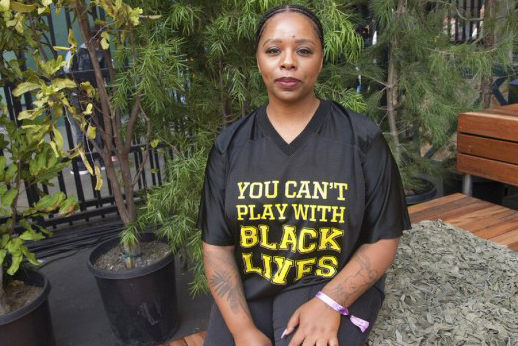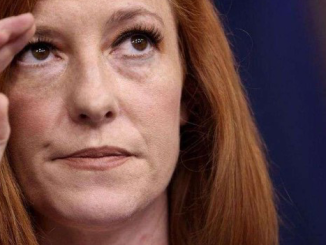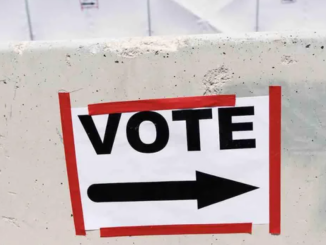
Black Lives Matter co-founder Patrisse Cullors falsely claimed to a group of black reporters during a private discussion that BLM was insolvent before it purchased a $6 million mansion in October 2020 with donor cash.
“Despite what has been reported, BLM has not been financially solvent,” Cullors told the reporters Monday, according to the Grio.
The embattled activist’s claim that BLM was insolvent before Summer 2020, when it received a $90 million windfall spurred by the death of George Floyd, is contradicted by financial records from its former fiscal sponsor that show BLM’s assets increased year over year while it simultaneously spent millions on travel, meals, and consultants.
After money started pouring into BLM’s coffers in 2020, Cullors said on the call Monday that the charity sought a permanent space to secure its legacy for years to come.
“It’s really important for folks to understand that the acquiring of the multipurpose property happened in October of 2020,” Cullors said in reference to the $6 million Los Angeles mansion BLM purchased in cash and then concealed from the public for 19 months. “For us, it was a huge accomplishment. And I’m speaking specifically to Black Lives Matter Global Network Foundation.”
“Securing a black space is neither a crime nor a hustle. That is really important for you all to understand,” she added. “Especially as there’s a long legacy of black people securing and wanting to secure land and property, especially when it comes to organizations. We want to see Black Lives Matter exist for a very long time; we want to see the legacy of it exist for a very long time. And there’s so many other legacy organizations that have their own buildings. And because it’s a part of that legacy.”
Cullors’s claim that BLM operated on a shoestring budget before 2020 is not supported by available evidence.
Audited financial statements for Thousand Currents, the California charity that fiscally sponsored BLM from 2016 through the first half of 2020, show that BLM consistently raised more money than it spent. BLM’s available assets steadily increased year over year while BLM simultaneously spent millions on travel, meals, and consultants, the records show.
Thousand Currents reported holding $2.4 million in temporary restricted net assets for BLM at the end of its 2017 fiscal year. BLM’s assets grew to $2.6 million at the end of the sponsor’s 2018 fiscal year and ballooned even further to $3.5 million at the end of its 2019 fiscal year.
BLM spent a combined $5.5 million during its 2017, 2018, and 2019 fiscal years, with nearly half of the spending, $2.5 million, going toward travel, meals, and consultants, Thousand Currents’s financial statements show.
It’s not clear the identities of the consultants BLM paid during those three years. However, an art firm run by the father of Cullors’s only child claimed to be the “lead developer of the art & cultural efforts” of BLM in 2018, according to the art company’s website.
BLM broke away from Thousand Currents shortly after Floyd’s death. Thousand Currents transferred $66.5 million into BLM’s coffers in October 2020, just two weeks before BLM purchased its LA mansion in cash.
BLM provided no indication to the IRS when it applied for charity status in August 2020 that it would use donor funds to purchase a mansion. BLM informed the IRS in its tax-exempt application that it expected to pay precisely $12,706,366 in “professional fees” in 2020 but $0 in “occupancy” expenditures.
Cullors told the black reporters during Monday’s call that she lived at the mansion for four nights shortly after its purchase amid an FBI investigation into a death threat against her.
The National Legal and Policy Center, a watchdog group, said in an IRS complaint submitted Thursday that Cullors’s overnight stays at the mansion are proof she unlawfully used BLM’s nonprofit assets for her personal benefit.
Also on the Monday call with black reporters was Angela Davis, a longtime activist and mentor to Cullors, who alleged that criticism of BLM’s finances is a continuation of the infamous illegal FBI domestic spying program COINTELPRO.
“I personally knew from the outset, from the time Black Lives Matter was created, that there would be attacks similar to the historical attacks launched against black leaders,” Davis said. “You know, particularly when we saw the FBI come up with this notion of black identity extremists. This was a sign that there was continuity with COINTELPRO. I can’t say that I would have predicted exactly how these attacks would express themselves. But I was convinced that they would happen.”
Philadelphia Magazine Editor-at-Large Ernest Owens, who was on Monday’s call with Cullors, railed against Davis for chalking up public concern over BLM’s questionable use of charitable funds and lack of financial transparency to a mass conspiracy.
“Black journalists like myself and others have been denied access, transparency, and follow-up from some of these #BlackLivesMatter leaders for years,” Owens said on Twitter. “Stop lying on our work.”
* story by The Washington Examiner


